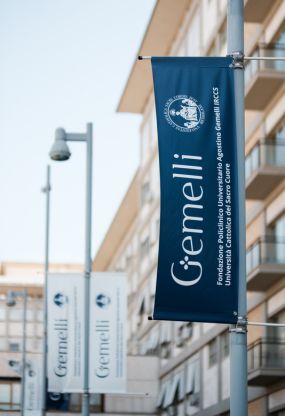Accredited School
The specialist in Thoracic Surgery must have gained theoretical, scientific and professional knowledge in the field of pathophysiology, clinical and instrumental diagnostics, the clinic of diseases of the respiratory system, the heart and large vessels, the esophagus, the mediastinum and the chest wall, of surgical interest. Thoracic endoscopy, endoscopic and minimally invasive surgery, emergency surgery, clinical and pharmacological and surgical therapy of diseases of the lung, heart and large vessels, esophagus and mediastinum, as well as reconstructive surgery and lung transplants are specific areas of expertise
Basic objectives:
The student must learn in-depth knowledge of anatomy, pathophysiology, and pathological anatomy of the chest and the organs it contains.
They must learn the knowledge necessary for the epidemiological evaluation and systematization of clinical data, also through the use of computer systems;
Educational objectives of the type of School:
- Progressive learning of the doctrinal, scientific and didactic-training contents of thoracic surgery, as well as of the care activity appropriate to it in the field of thoracic and minimally invasive surgery
- Acquisition of semiological knowledge, laboratory and instrumental methodologies to implement the diagnostic and therapeutic procedures of diseases of surgical interest of the thorax and the organs contained therein
- Acquisition of mastery of surgical techniques, including those related to thoracic oncological surgery, emergency and emergency thoracic surgery and lung transplant surgery, in order to be able to intervene surgically from a therapeutic point of view in an integrated way with other specialized surgical sectors and with medical and radiogenic therapeutic supports.
Integrated training objectives (i.e. common trunk): the student must acquire in-depth knowledge of anatomy, clinical biochemistry, pathophysiology and pharmacology; knowledge suitable for the epidemiological assessment and classification of clinical cases, also through computerised systems; practical experience necessary for the correct clinical evaluation of a patient on the basis of knowledge of the etiopathogenetic mechanisms of morbid processes, the related anatomical-pathological aspects, and the microbiological and haematological implications; deepening of knowledge of scientific English. The resident must also acquire the knowledge of Surgical Anatomy necessary for objective clinical examination and operative medicine; the principles of asepsis and the problems inherent in the organization and environmental hygiene of operating rooms; knowledge of surgical instruments and suture materials; traditional and alternative surgical techniques and methods; the basic knowledge and related practical experience, necessary to define and personally verify, on the basis of the overall assessment of the disease and the patient, a correct definition of the cardiac, thoracic or vascular pathology in individual patients and the indication of the most suitable type of treatment, according to the risks, benefits and expected results for each individual patient; learning of theoretical-practical knowledge for the preoperative and postoperative therapy (including intensive care) of surgical diseases related to the specialties, so that the resident can be able to face and solve the problems related to the setting and management of the immediate postoperative course and remote controls. On the basis of an overall assessment of the disease, he must be able to personally deal with the execution of elective and urgent surgical acts. The resident must acquire: the basic knowledge and experience necessary to diagnose and set up the treatment of the pathologies within the competence of the class, in an overall view of the priorities in cases of multiple pathologies or injuries, in patients who require the necessary use of other relevant specialist afferents; knowledge of the medico-legal aspects related to one's profession and of the set of laws, rules and regulations governing health care; the ability to organize and manage his or her activity as a surgeon in relation to the characteristics of the structures in which he or she will be called upon to operate.
The following are compulsory professionalizing activities to achieve the purposes of the typology:
General surgery activities: carried out over a period of six months, participation as an operator in 35 operations divided between high and medium surgery;
Cardiac surgery activities: carried out over a period of 3 months, participation in 30 cardiac surgeries;
Vascular surgery activities: carried out over a period of 3 months, participation in 30 vascular surgeries;
Thoracic surgery activities: participation as an operator in at least 250 operations of which:
- 10 surgeries of high surgery, 30 of medium surgery and 80 of minor surgery as first operator.
The following are similar or supplementary objectives:
basic knowledge and experience necessary to recognize and, as far as it is concerned, treat pathologies referable to the field of other specialties, particularly in situations where treatment cannot be postponed. The resident must achieve the ability to comprehensively frame multi-specialty problems by correctly defining treatment priorities in the presence of multiple pathologies and injuries.
They must also learn the medical-legal aspects related to the specialist class and the laws and regulations governing health care
The student will be able to compete for the diploma after completing the professionalizing activities.
As part of the training course, the student will have to learn the scientific bases of the type of School in order to achieve full maturity and professional competence that includes an adequate ability to interpret scientific innovations and critical knowledge that allows him to consciously manage both assistance and his own updating; In this context, participation in meetings, congresses and the production of scientific publications and periods of attendance in qualified Italian and foreign institutions useful for his/her training may be envisaged.




